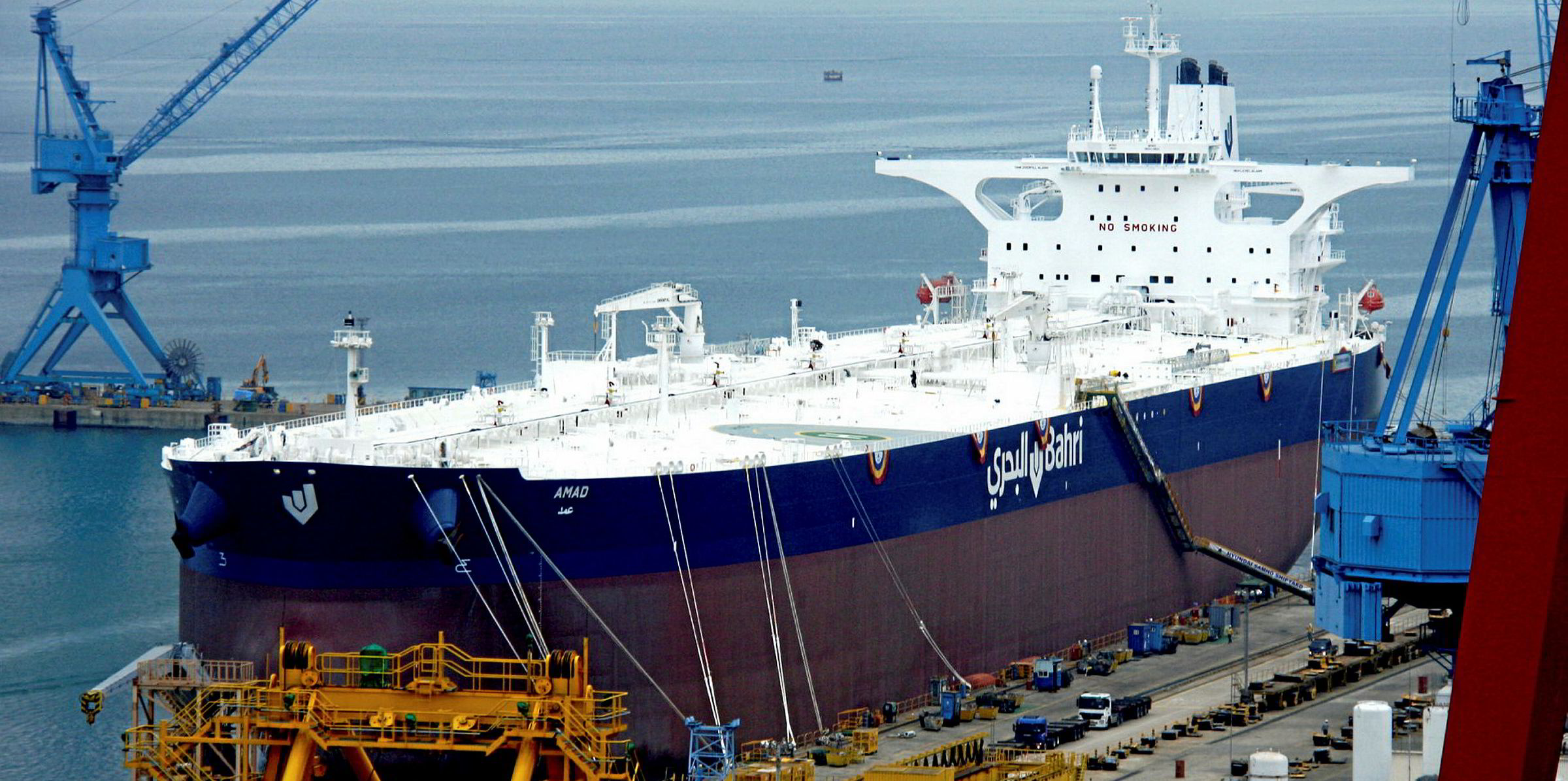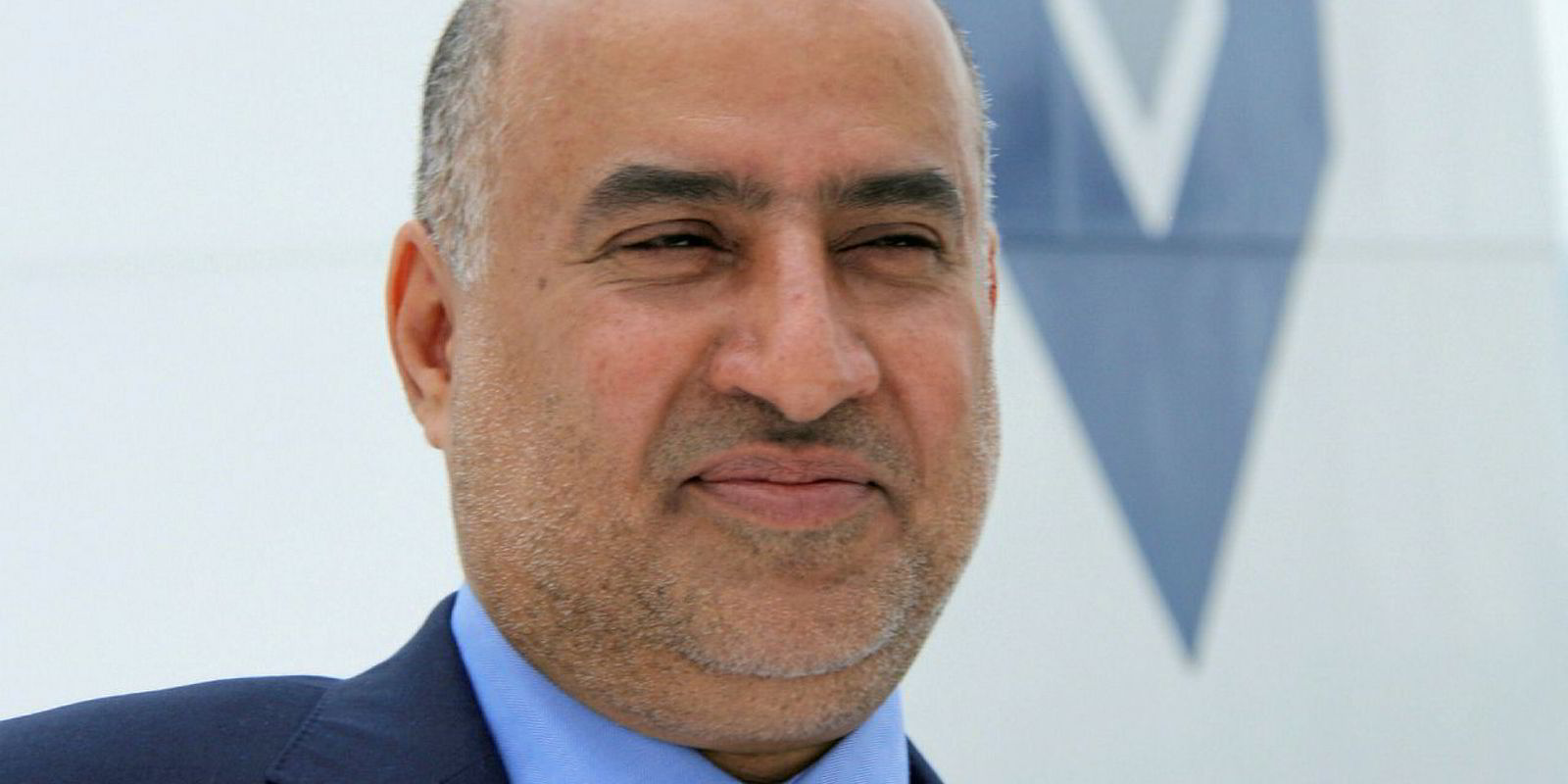The 300,000-dwt tanker Amad could potentially be the last VLCC that Bahri builds at an Asian shipyard.
While Hyundai Samho Heavy Industries was putting the finishing touches on the ship, work was ramping up on the construction of the giant new Saudi Arabian shipyard, International Maritime Industries (IMI).
The yard is a joint venture between Saudi Aramco, Hyundai Heavy Industries, Bahri and Lamprell. It is expected to begin operating by 2020 and will be responsible for building future Bahri ships.
Bahri CEO Abdullah Aldubaikhi says he is confident that IMI will be able to build ships to its exacting standards, but cautions that the company has not decided it will build all its ships there.
“We hope that we will be able to do so. We are a shareholder so we are committed to supporting it,” he says.
Aldubaikhi suggests that Bahri will continue to order new ships despite many of its tanker-owning peers being firmly against adding more capacity to the world fleet.
“You can’t just stop building ships. There will always be ships that need to be replaced.”
With its commitment to ordering new ships at IMI, Bahri might have to wait before it can go ahead with a raft of new orders, but this does not seem to worry Aldubaikhi.
“We don’t have to build immediately. We can always charter the ships we need,” he explains.
Future newbuildings, he adds, will be designed to take into account upcoming IMO environmental regulations.
The Amad, for example, has been fitted with a ballast water treatment system, and other Bahri ships will be fitted with them at their next dry dockings.
The company is still considering its options when it comes to fitting scrubbers.
“If we have assurances that there will be low-sulphur fuel available, then we won’t need to fit scrubbers. If we know what the price of low-sulphur fuel will be versus heavy fuel oil, then we will know what to do. At the moment there is a lot of ambiguity. We are waiting for these questions to be answered. We can’t make proper decisions until we have proper information.”
As for the recent IMO deal to reduce shipping emissions by 50% over the next few decades, Aldubaikhi suggests that whatever is required to meet these cuts be made mandatory across the board so that all shipping companies can compete on a level playing field.
“Bahri will comply with any regulations, but we cannot do it unless it applies to everyone,” he concludes.





